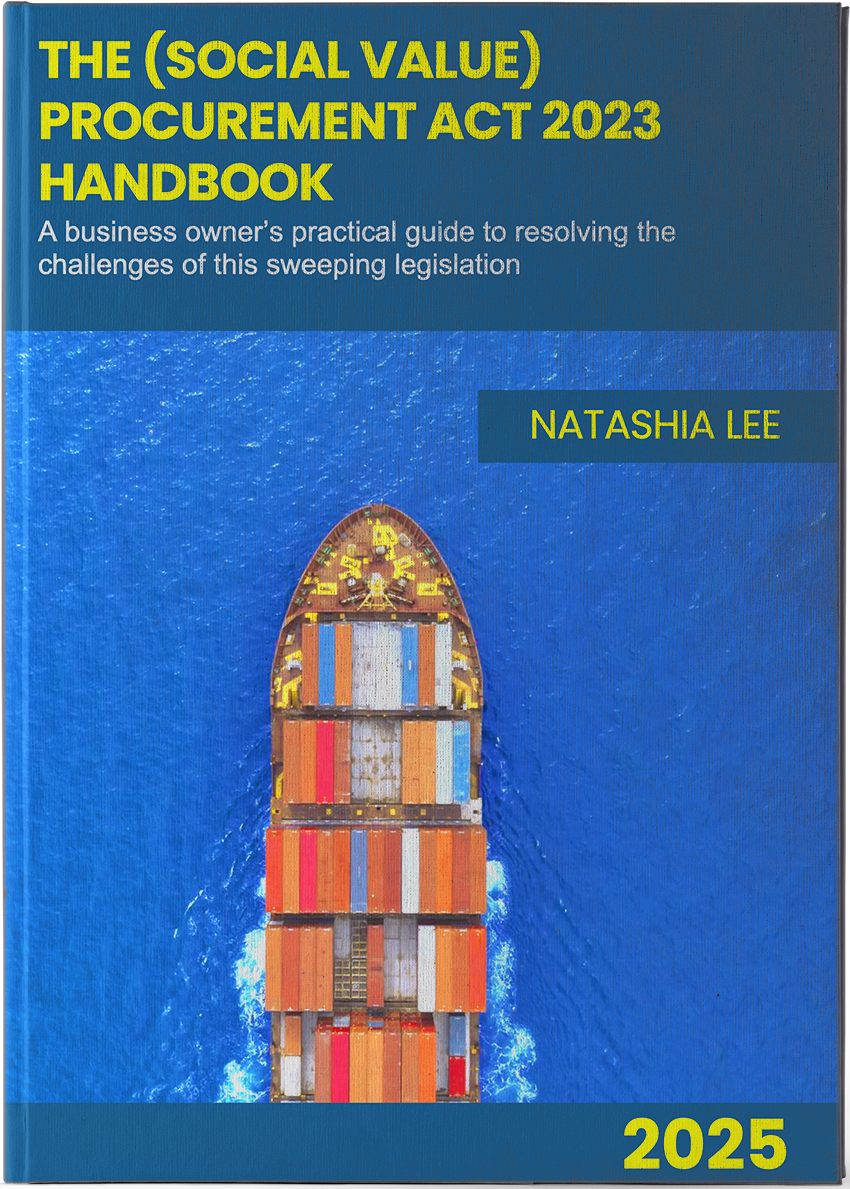A professional’s guide to the Procurement Act 2023. We explore the new legislation and offer a FREE COPY of our 50-page Procurement Act Handbook (published 2025). Expert guidance and checklists!
In this extract of the ESG Pro Procurement Act Handbook, we consider the key changes to the Procurement Act 2023 and especially the implications for small businesses.
Small Business and SME Considerations
The Procurement Act (2023) recognises the critical role that small and medium-sized enterprises (SMEs) play in the UK economy and aims to make public procurement more accessible to these businesses. Historically, SMEs have faced barriers when competing for government contracts due to complex tendering requirements, lack of visibility into opportunities, and disproportionate administrative burdens.
The new regulatory framework seeks to level the playing field by streamlining procurement processes, reducing unnecessary bureaucracy, and increasing transparency around contract opportunities. SMEs can now benefit from simplified bidding procedures, improved payment terms, and greater support for supplier diversity.
This section examines the key changes designed to support SME participation in public procurement and outlines strategies for SMEs to enhance their competitiveness under the new framework.
Barriers to SME Participation in Public Procurement
Despite efforts to improve access, SMEs still encounter several barriers when bidding for public contracts. The most common challenges include:
- Administrative Complexity – Many SMEs lack the resources to navigate lengthy and complex procurement procedures, which historically favoured larger firms with dedicated bid-writing teams.
- Financial Constraints – Cash flow challenges, stringent financial requirements, and long payment cycles have deterred many SMEs from engaging in public sector tenders.
- Limited Awareness – Many smaller businesses are unaware of available contract opportunities due to a lack of visibility in procurement platforms.
- High Compliance Costs – Meeting regulatory requirements, including Social Value and sustainabilityobligations, can be resource-intensive for smaller suppliers.
- Difficulty in Demonstrating Experience – SMEs often struggle to meet experience-related evaluation criteria, as public contracts frequently favour suppliers with established track records in government procurement.
To address these barriers, the Procurement Act (2023) introduces several reforms aimed at making procurement more SME-friendly.
Key SME-Friendly Reforms in the Procurement Act (2023)
The Procurement Act (2023) includes a range of measures to increase SME participation in public procurement, including:
- Greater Transparencyand Visibility
- A centralised digital procurement platform will list all available public contracts, ensuring SMEs have equal access to opportunities.
- Authorities must publish clear evaluation criteria and contract award justifications, allowing SMEs to better tailor their bids.
- Simplified Procurement Processes
- The Act reduces bureaucratic barriers by encouraging simpler application processes for contracts under a certain threshold.
- Pre-qualification requirements have been standardised to make it easier for SMEs to qualify for multiple contracts.
- Faster Payment Terms
- Public sector buyers are now required to pay SME suppliers within 30 days of invoice submission, reducing cash flow constraints.
- Improved subcontractor protections ensure that SMEs receive payments on time when working within larger supply chains.
- Breaking Contracts into Smaller Lots
- Large public contracts must now be divided into smaller lots where appropriate, allowing SMEs to bid for portions of larger projects rather than being excluded entirely.
- Authorities must justify any decision not to break a contract into smaller lots, ensuring fairness in contract structuring.
- Support for Innovationand Startups
- The new framework incentivises procurement authorities to engage with innovative SME suppliers, fostering opportunities for cutting-edge solutions in public sector services.
- Innovationpartnerships allow SMEs to collaborate with public sector buyers to develop bespoke solutions, reducing barriers to entry for new market players.
Strategies for SMEs to Succeed in Public Procurement
To maximise Procurement Act (2023) opportunities, SMEs should adopt the following strategies:
 |
Register on Digital Procurement Platforms – Ensure that the business is listed on key government portals, such as Contracts Finder and Find a Tender Service (FTS). |
 |
Leverage SME-Friendly Procurement Programs – Engage with government programs designed to help SMEs secure public contracts, such as the Small Business Research Initiative (SBRI). |
 |
Collaborate with Larger Suppliers – Consider forming joint ventures or subcontracting partnerships with larger firms to gain entry into major contracts. |
 |
Demonstrate Social Value Contributions – Highlight local employment, diversity, and sustainability initiatives in bids to align with Social Value evaluation criteria. |
 |
Invest in Compliance Readiness – Prepare for procurement requirements by ensuring adherence to PPN 06/20 (Social Value), PPN 03/23 (Carbon Reduction), and ethical supply chain standards. |
 |
Seek Government Procurement Support – Engage with regional procurement hubs and business support services for training, funding, and legal guidance for SMEs. |
Summary
The Procurement Act (2023) introduces significant changes to improve SME participation in public procurement, from increasing transparency to reducing payment delays and simplifying bid requirements. However, SMEs must take proactive steps to capitalise on these opportunities, from registering on procurement platforms to refining their compliance strategies.
With the right preparation, SMEs can unlock new public sector opportunities, enhance their market presence, and contribute meaningfully to government contracts. The next section will explore Delays and Implementation Timelines, providing a roadmap for businesses to prepare for the phased rollout of the new procurement framework.
